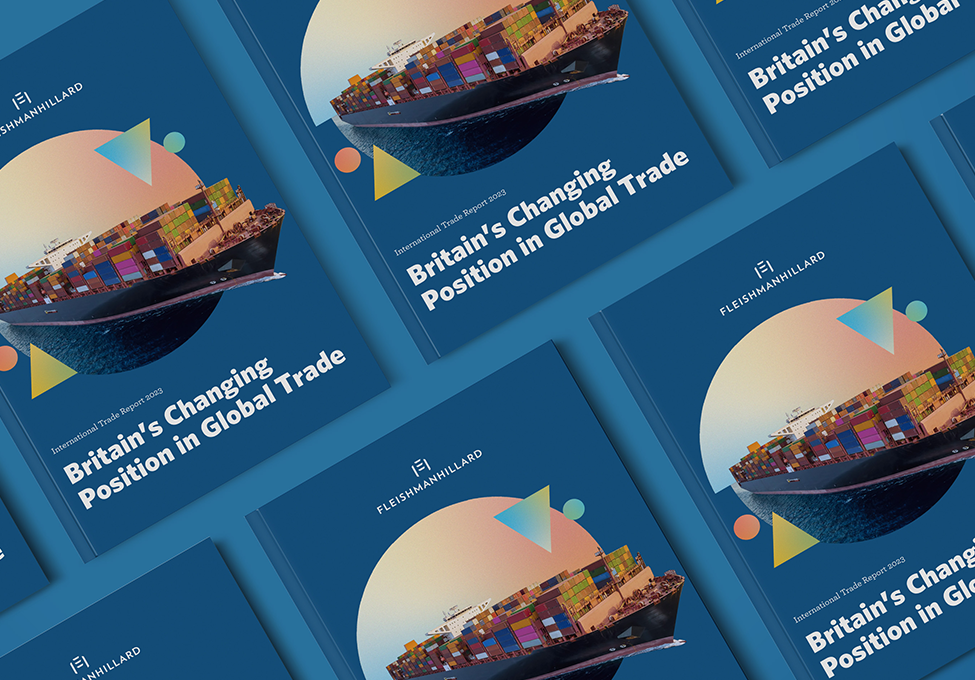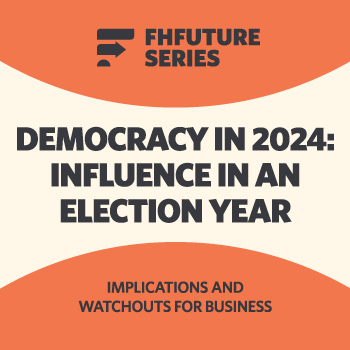Britain’s Changing Position in Global Trade: As the UK chases growth, it must answer calls from business to improve international trade
Earlier this month, the UK Chancellor of the Exchequer Jeremy Hunt announced his Spring Budget, with an ambition to get people into employment and boost economic growth. But despite being a perfect vehicle for both objectives, trade received few mentions.
For several years, the UK Government has asserted that Brexit, channelled through new free trade agreements, would boost trade. At the least, the market would naturally rebalance; trade lost with the UK’s closest partners in the EU would be replaced by trade with Canada, South Korea, Japan, Australia and other countries with which new FTAs have been struck.
But FleishmanHillard’s new research, Britain’s Changing Position in Global Trade, paints a different picture on priorities for trade. It also reinforces the connection between trade issues and a company’s reputation, which we see across B2B and B2C customers and partners.
According to 201 senior business leaders in the UK surveyed by TRUE Global Intelligence, FleishmanHillard’s in-house research and analytics practice, post-Brexit disruption was most identified as having an impact on trade (62%), higher than any other factor including Covid disruption (54%). Meanwhile, only 27% of respondents noted protectionism limiting market access as the most significant impact on their trade operations. So much for the power of FTAs.
The European Union was clearly singled out as the most important trade market for UK businesses, ranked first by 63% of respondents. The United States, the target of the UK government’s most desired but as yet unattainable FTA, came in a distant second with 17%. With 57% of businesses saying trade with the EU is harder than a year ago, and two-fifths reporting a decline in export volumes overall, this is cause for concern.
The findings align with broader trends reshaping the business landscape. Trade is increasingly becoming more regionalised, moving away from the globalisation model that was so strained through the COVID-19 pandemic. This shift is driving discussions about reshoring or near-shoring of supply chains and could account for UK businesses reporting the closest geographic neighbours, the EU, are their priority trading markets. It suggests the “gravity model” of trade being driven by proximity was right all along.
Given UK businesses continue to report border delays and supply chain issues as hampering their ability to trade with the EU and the rest of the world, it also adds pressure and urgency to the calls for the Government to take stock and address these critical blockages.
This research also sends an important message to communications, corporate affairs and public affairs leaders. With 73% of business leaders recognising the strong correlation between international trade issues, business performance and reputation, companies need to more closely connect trade with reputation management. That includes managing the potential risks from disruption and potentially being more proactive in addressing them, both to re-assure customers and consumers, and to argue for the right policy and regulatory solutions to solve them.
As the Government continues its pursuit of growth, it must acknowledge the trade-shaped elephant in the room, and work to create closer economic ties with partners in the EU that will benefit business. The Windsor Framework can be a smart, modest step in the right direction. Securing agreement to join CPTPP, bringing the UK into a trade bloc with 11 Asia-Pacific region countries, is another useful step. But to address the problems facing a bruised and volatile UK economy, it is time for giant leaps on trade, most notably with our neighbours in the EU.
Michael Hartt, Senior Partner and Head of International Affairs
Find Out More
-
Democracy in 2024: Influence in an election year
May 2, 2024
-
Platinum CMS Award
March 13, 2024
-
Changing Communications Tack at Mobile World Congress
February 21, 2024



